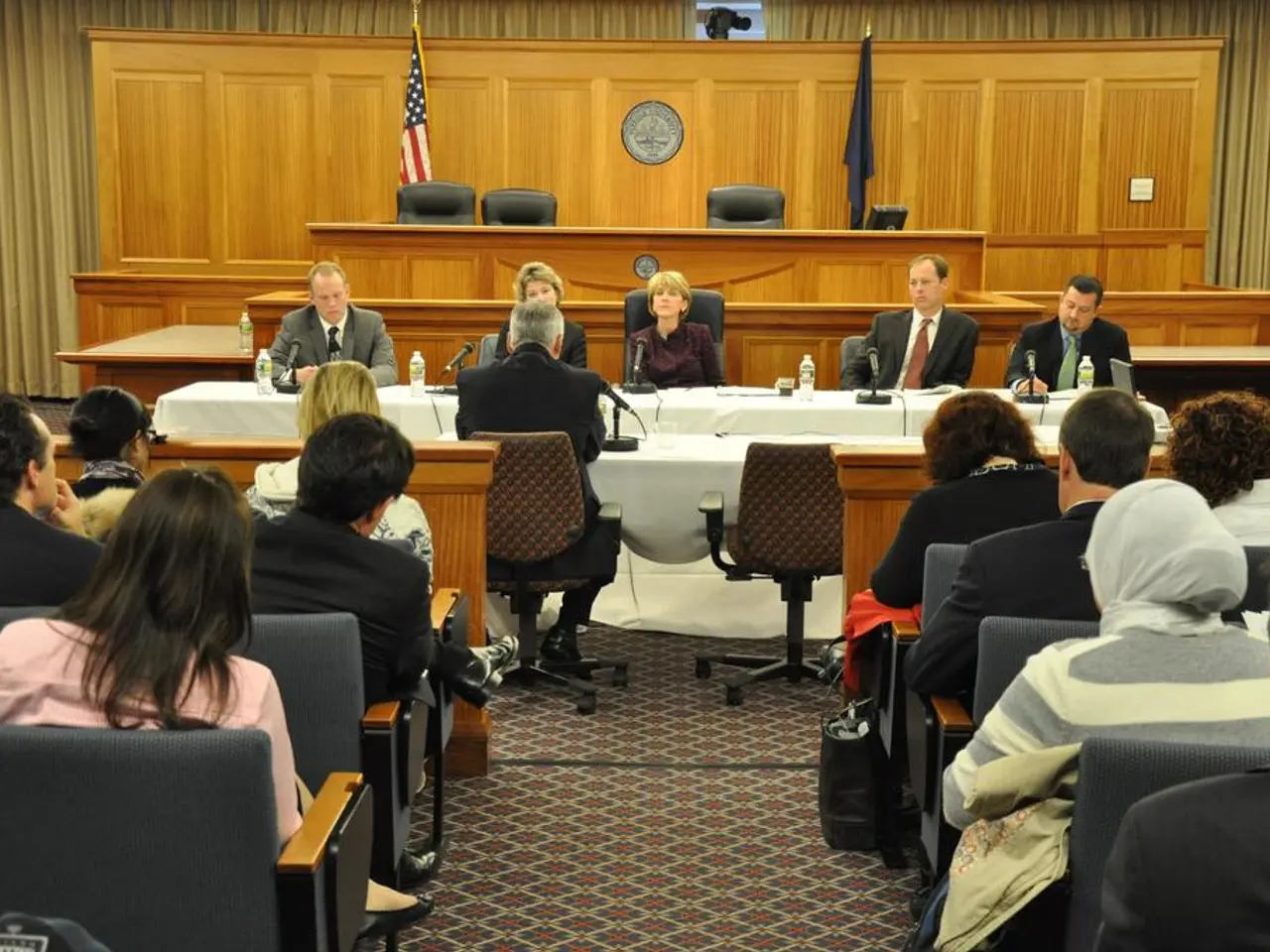Conditions for resolving the Ukraine conflict discussed by Donald Trump
In the heart of the US capital, the White House played host to an important meeting on Monday, bringing together European leaders and President Donald Trump. Among the attendees were French President Emmanuel Macron, British Prime Minister Rishi Sunak, German Chancellor Olaf Scholz, Italian Prime Minister Giorgia Meloni, and European Commission President Ursula von der Leyen, in addition to Ukrainian President Volodymyr Zelensky.
The focus of the discussions revolved around Ukraine's security and territorial integrity, with Zelensky emphasising the need for practical security guarantees rather than immediate NATO membership. He reaffirmed Ukraine's sovereignty, rejecting Russian claims that undermine it, and sought strong Western backing to protect Ukraine's territorial integrity, particularly concerning the Crimean peninsula.
Despite the desire for Ukraine to join NATO, as mentioned by Trump, the current reality is that NATO membership is not possible, but steps should be taken to bring Ukraine closer to NATO and the EU, enhancing security without formal accession at this stage. The discussions highlighted strengthening NATO’s eastern flank, maintaining troop presence, and possibly expanding nuclear burden-sharing with allies like Poland to bolster deterrence against future Russian aggression.
Zelensky’s position directly challenges Russian narratives denying Ukraine's sovereignty and independence, maintaining firm resistance against pressure to capitulate. The meeting with Trump and European leaders reflects ongoing efforts to shape a peace outcome securing Ukraine’s long-term security and sovereignty, though Trump has at times publicly ruled out NATO membership for Ukraine, creating tension with Kyiv’s ambitions.
Trump's statement implies that the conflict in Ukraine is influenced by Zelensky's decisions regarding Crimea and NATO. According to Trump, Zelensky can choose to either conclude the standoff with Russia or continue military actions. The resolution of the conflict in Ukraine, Trump believes, hinges on Zelensky's stance on key issues, and if Zelensky abandons claims on the Crimean peninsula, the conflict with Russia could be resolved.
Zelensky is scheduled to visit Washington on August 18 for talks with Trump, and the meeting with European leaders is set to take place on the same day. The upcoming discussions promise to be significant for the US, as per Trump's statement, and reflect the continued international interest in finding a peaceful resolution to the conflict in Ukraine.
[1] [Source] [2] [Source] [3] [Source] [4] [Source]
The upcoming meeting between Zelensky and Trump, along with European leaders, is anticipated to focus on policy-and-legislation and politics, as they discuss Ukraine's security and territorial integrity, particularly concerning the Crimean peninsula, which is a key point of war-and-conflicts. The general-news surrounding the resolution of the conflict in Ukraine heavily relies on Zelensky's stance on Crimea and NATO, as advocated by Trump.
The meeting reflects ongoing international efforts in shaping a peace outcome, securing Ukraine’s long-term security and sovereignty, which involves policy-and-legislation regarding Ukraine's relationship with NATO and the EU. These discussions also revolve around the broader context of war-and-conflicts, particularly in relation to policy-and-legislation and politics regarding Ukraine's territorial integrity.






